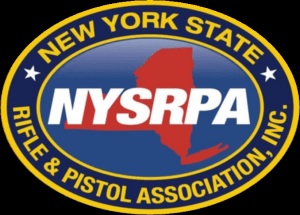 New York City bans taking your licensed sidearm out of the city, for any reason, and their local courts have approved of this law. After a nine-year vacuum on gun cases at the High Court, this is the perfect one to bring—straight forward, severe, a blatant violation on the right to bear arms, outrageous on its face, a raw exercise of uncontrolled power. Controversially decided in two lower courts—against the civil right to arms—that’s the nub of the case. Can lower courts operate outside strict guidelines the High Court itself has set? Can lower courts write their own law?
New York City bans taking your licensed sidearm out of the city, for any reason, and their local courts have approved of this law. After a nine-year vacuum on gun cases at the High Court, this is the perfect one to bring—straight forward, severe, a blatant violation on the right to bear arms, outrageous on its face, a raw exercise of uncontrolled power. Controversially decided in two lower courts—against the civil right to arms—that’s the nub of the case. Can lower courts operate outside strict guidelines the High Court itself has set? Can lower courts write their own law?
“New York has been treating the Second Amendment as a government permit to infringe on human and civil rights, and worse, its courts have been bowing to their leaders’ demands,” said Alan Korwin, an award-winning author and consultant to JPFO. “The Supreme Court took this case to examine that aberrant behavior.”
The Friend of the Court brief joined by JPFO emphasizes the core rights protected, calling for high-level “strict scrutiny” in cases dealing with the Second Amendment in all lower courts. Courts have been nearly criminally remiss in their actions since the Heller case said stop that in 2008, and lower courts didn’t, a widely recognized problem. “Circuit courts admit they treat the Second Amendment as a second-class right,” JPFO’s brief notes. Yet the Supreme Court insisted the Second Amendment is not a “second-class right” to be “singled out for special—and specially unfavorable—treatment,” in its Chicago v. McDonald ruling in 2010. This case scares the left.
A summary of the main points in JPFO’s brief follows.
###
Backgrounder
This case has attracted 26 amicus briefs. The U.S. Dept. of Justice filed one just before the deadline, on our side, making some excellent points, summarized below. Here’s the heart of the amicus brief JPFO filed, along with five others in support of the Petitioners—New York State Rifle and Pistol Assn., et al.
- Strict scrutiny should apply in reviewing any ban on self-defense for law-abiding citizens, and to bans on training.
- Strict scrutiny is the appropriate standard for reviewing any prohibitions on law-abiding citizens, because they receive the greatest Second Amendment protections.
- Strict scrutiny is appropriate for evaluating burdens on self-defense.
- Strict scrutiny is appropriate for gauging the City’s burdens on travel and range-training.
- New York City’s travel prohibition is a very severe burden.
- Handgun rentals are no substitute for practice with one’s own gun (city police say go rent guns at other ranges).
- Target shooting is protected by the Second Amendment.
- Like other circuits, the Second Circuit has invented a unique and feeble version of intermediate scrutiny for the Second Amendment.
- The City must provide actual evidence and cannot rely instead on shoddy reasoning or data.
- Intermediate scrutiny must require consideration of substantially less burdensome alternatives.
- By jettisoning this Court’s heightened scrutiny requirements, the lower courts have adopted the freestanding interest-balancing this Court repeatedly rejected.
- Lower courts have been effectively nullifying the Second Amendment; The Second Circuit applies “rational basis” in Second Amendment cases, and the practice is spreading to other courts. (Rational basis is the lowest level and virtually no test, it basically holds that if government legally enacted something, it therefore makes sense, eliminating oversight with circular reasoning.) The Seventh Circuit shows the need for a robust, universal Second Amendment test. The right protected from state infringement by the Fourteenth Amendment has the same original meaning as the right protected from federal infringement by the Second Amendment.
- The circuit court decision upholding New York City should be reversed.
The U.S. Dept. of Justice makes these additional arguments
- The NYC transport ban infringes the right to keep and bear arms.
- The Second Amendment protects a right to transport arms outside the home.
- The transport ban infringes the right to transport arms outside the home.
- The Court of Appeals’ reasons for upholding the transport ban are mistaken.
- The ban on transporting firearms to out-of-state ranges violates the dormant Commerce Clause, but not the right to travel.
Anti-gun-rights groups have also filed briefs, which JPFO will summarize in a bulletin in the near future. Concerned that the U.S. Supreme Court will overturn New York’s draconian ban on gun rights, so-called “gun-control” groups have actually pressed city police to loosen their restrictions, to make the case moot, and keep it out of the High Court. One Pulse For America, headed by former Star Trek actor George Takei is among those seeking to scuttle the case by asking police to eliminate the need to get a carry permit to take a household firearm out of the city, a ploy that failed.
